2017 will be remembered as a year of record heat and droughts, ecological disasters and infections - but also as a year of environmental successes, struggles that bore fruit and a world that is slowly moving towards a greener future
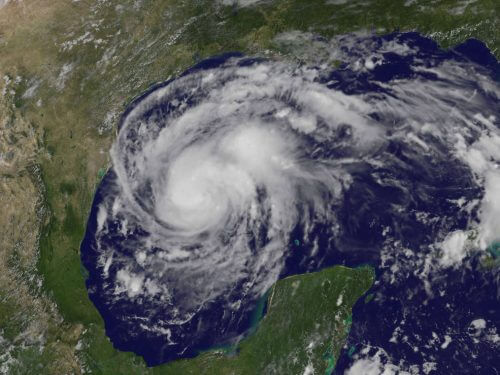
Angle, a news agency for science and the environment
יNoir: Europe is frozen and pesticides harm children
The cold wave that hit Europe at the beginning of 2017 claimed many lives. Israeli researchers have shown How, using satellite images, it is possible to measure the air temperature inside the city, which sometimes varies even in areas that are a few meters away from each other. The research conclusions can help maintain the residents' health and prevent illness and death as a result of exposure to inappropriate temperature conditions.
In January it was also published An investigation that examined how pesticides (which are found not only in the fruits and vegetables we consume, but also in processed food) particularly harm sensitive populations and especially babies and children. That is why it is necessary to adjust the approvals for spraying so that they take into account the nutrition of children in Israel and to establish a dedicated national database about the use of pesticides.
February: a visit by the sunfish, residents against the road and T.O. in Shebat early

In February, surprised sailors in Ashkelon unexpectedly met: Big sunfish, an endangered species that is rarely seen in Israel. The average weight of a sunfish is 1,000 kilograms and it can reach a diameter of up to 3.3 meters. The surprising and happy appearance of the sunfish on the shores of Israel proved to us once again that the Mediterranean Sea contains a unique and rich biological diversity that should and should be preserved.
North of there, near Moshav Hufit, a resident protest was organized this month following the intention to make dramatic changes to the coastal road,which may endanger the dune in the Nahal Alexander area which serves as an extraordinary habitat of its kind in the world and is inhabited by unique species.
That month, the effects of climate change caused many plants and trees to bloom Advance the Tu Bashvet celebrations And show us how the world around us is expected to change.
March: A crack in the ice, beach pollution and the dark secret of the fashion industry
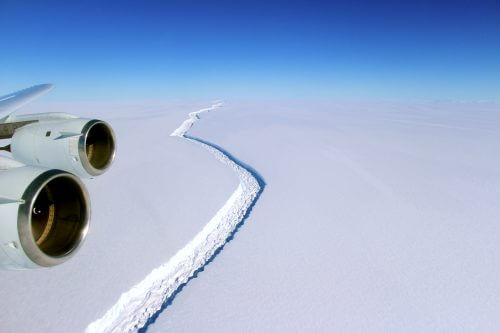
In March A huge crack opened In the Larsen Sea ice shelf, a huge ice surface located at the edge of the Antarctic continent, and experts have warned that the breaking of the shelf is not far away. In recent years, the ice shelves have been slowly breaking up due to global warming, and indeed, in July the ice shelf broke and part of it washed into the sea. The breaking of the ice surface and its drifting into the sea is expected to have a substantial effect on the rise of the sea level.
In March it was published An investigation regarding sea pollution in the winter season. Winter is a difficult time on the beaches, as wastewater originating from sewage is discharged to them and rainwater that contains high levels of pollutants is also washed into them.
In March, we also turned the spotlight on the environmental impact of the most common product in our lives (after food) - The clothes we wear. The fashion industry is considered the second largest polluter of all industries in the world, and each stage of the life cycle of our clothes affects the environment in one way or another.
April: a plan to save the dunes, fast food packaging and a scientists' march in Tel Aviv
Remember when you were kids, and you had a competition to see who would reach the top of the dune first? So today only about 17 percent of the coastal dune areas are in a good state of preservation and have not been damaged by construction and destruction activities. Besides childhood memories, these areas contain unique animals and plants, and these are in danger. In April Researchers have proposed ways to treat dunes To preserve them and the unique variety of animals and plants that characterizes them.
In April it was published An investigation regarding fast food packaging - Yes, not only the food itself is processed and greasy, the packaging that wraps it is also dangerous to health. Those packages contain fluorinated organic substances (or in English PFAs), which repel water and oil, and are therefore very common in the industrialized food industry. The trouble starts when these substances leak from the packaging into the food, so they can cause health problems.
Marches for science took place around the world this month, as a protest against Trump's policy on climate change. About a thousand people also marched in Tel Aviv Calling to rely on scientific knowledge in making informed decisions about the environment, in Israel and in the world.

May: Doubly polluting LG B'Omer, war on wild cats and a dam on the Nile
LJ Baumer will be remembered this year perhaps as the most non-environmental holiday observed in Israel. According to official data from the Ministry of Environmental Protection, every year in Lag B'Omer air pollution jumps all over Israel at a rate of up to 18 times (!) than the average. This year, due to the decision to extend the holiday, bonfires were held for two consecutive evenings - And you can only imagine the air pollution they caused.
In May, Australia stepped up its war on feral cats: after the government in 2015 began promoting a plan to kill millions of feral cats, claiming that they prey on endangered animals, Australia announced in May Technological development that will help her in her work. This is a new implant that will be inserted into the body of the wild animals, and will become toxic only when it comes into contact with the stomach of the cats that prey on the animals.
And with our neighbors, the tension around increased again The gigantic dam that Ethiopia is building on the sources of the Nile, and may harm Egypt's water supply and cause a political upheaval in the region.
June: Trump leaves Paris, and climate change takes its toll
The month of June opens with dramatic news for environmentalists and those concerned about the future of the planet, after that US President Donald Trump announced his intention to withdraw from the Paris climate change agreement. This means harming the implementation of the agreement, which was achieved through major international efforts. But all is not lost: it will take several years for the US to finally withdraw from the agreement, and in the meantime environmental laws in the various countries are helping efforts to reduce greenhouse gas emissions.
And if anyone had any doubts why it is important to fight the effects of climate change, There is an Israeli study that was published in June and shows a clear connection between the rise in temperature as a result of climate change and the spread of diseases transmitted by mosquitoes, including West Nile fever, Zika and more.
July: An ecological disaster in Nahal Ashlim and the world is moving towards a cleaner future
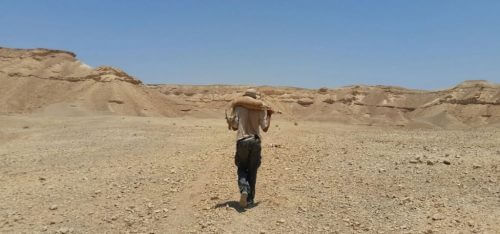
Acid instead of water, corpses of goats instead of thriving nature: the month of July brought with it one of the biggest ecological disasters of recent years, The disaster in Nahal Ashlim. About 100 cubic meters of acidic wastewater flowed in a tremendous flow from a storage pond that collapsed at the "Rotem Ampert" factories straight into the Nahal Ashlim riverbed in the south of the Judean Desert, while filling the backs and the ground with toxic substances. Fortunately, the route was empty of travelers at that time and there were no casualties, but the animal and plant population in the area was severely damaged, and the restoration efforts will continue for many years to come.
and meanwhile in the world, There was a significant decrease in the planning and construction of coal-fired power plants. The sharp decrease was recorded thanks to the transition to renewable energies: energies that do not rely on sources such as fossil fuels, but on non-degradable sources, such as solar energy, wind and water. Most of the change is due to policy changes in India and China, which launched the largest floating solar farm in the same month.
August: July breaks records and beaches are free of plastic bags
The summer of 2017 was one of the hottest in the history of the State of Israel. The average temperature in July during the day was 1.5-2.5 degrees higher than the multi-year average, and it made July 2017 one of the warmest since the beginning of the measurements, in line with the years 2010 and 2012. This is no coincidence: an increase in the frequency of hot events is one of the first things expected to happen with the increase of climate change phenomena.
But the month of July also brought with it good news in the environmental field. Half a year after the implementation of the bag law, under which Israeli citizens were required to pay 10 shekels for a plastic bag, the consumption of bags in the large marketing chains decreased by 80 percent. This is also reflected at the beach: A waste survey conducted on the beaches of the country revealed that there has been a decrease of almost 50 percent in the plastic bag waste that reaches the beaches. This means less damage to the environment and marine animals.
September: Storms and fires around the world, less fish in the sea and plastic that stays forever
"Harvey", "Irma" and "Jose" sound like innocent names, but in fact they are Powerful hurricanes which left a wave of destruction in the Caribbean islands and the southwest of the USA. The 2017 hurricane season was particularly deadly, and it appears that hurricanes are becoming stronger because of climate change - which is causing an increase in the temperature of the sea water that fuels these storms.
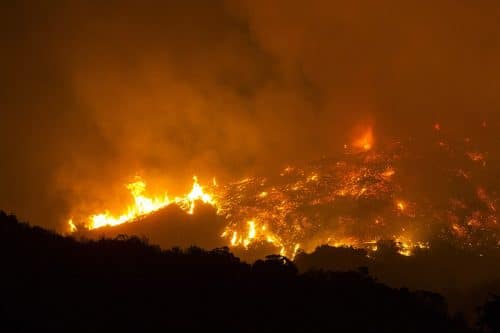
In addition to the storms, a deadly wave of fires raged in September in Los Angeles, and opened a particularly deadly fire season, which continues throughout California to this day. The culture these extreme events It is probably part of global climate change.
And meanwhile in Israel, Rosh Hashanah has arrived and with it the numbers are not encouraging The dwindling abundance of fishing in the Mediterranean. Years of overfishing, the intrusion of invasive species and the warming of the sea have caused fatal damage to the local fishery. The new research suggests ways to stop the negative trend - first of all, a ban on fishing during the breeding season of the fish, which will allow them to recover and overcome the invasive species.
And for those who missed it - a campaignLet's stop calling it a one-off” launched in September told the truth about disposable utensils: these plastic utensils will stay with us forever, and if we don't stop consuming them, we will continue to drown in plastic waste.
October: Smaller fish and leather shoes with less leather
October brought with it more bad news for Mediterranean fish, after a new study showed thatGlobal climate change will cause a third of the size of the fish in the sea to decrease. The global climate change is causing the warming of the sea water, which in turn causes two processes that harm the breathing of the fish and harm their size.
Good news was recorded in the fashion arena: Nike has launched new sneakers made of Flyleather, leather that is produced from leftover leather using new technology. The switch to the use of leather scraps results in a saving of about 80 percent in the loss of raw materials during shoe production, thus reducing the environmental impact of this already polluting industry.
November: The Sea of Galilee is at a new low, scientists unite against climate change and Bonn dreams of Paris
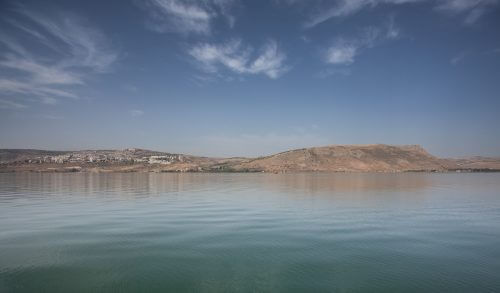
The rainy season refuses to start, and negative records begin to be recorded: the level of the Sea of Galilee is approaching the black line, And new studies predict that in the future, due to the succession of years of drought, there will be a 25 percent decrease in the amount of water available in the sources of the Sea of Galilee, alongside alarming processes of salting the water in the lake.
At the same time, Israel and the world continue to try to fight the effects of climate change. A new initiative of Israeli scientists Calls on the Israeli government to act to curb the climate crisis, and the UN Climate Conference Gathering in Bonn To try and implement the Paris Agreement - even without Trump.
December: The secrets of the Mediterranean are revealed, and the fight against air pollution continues
What really happens in the depths of the Mediterranean Sea? An underwater research station which is placed at a depth of one and a half kilometers in the depths of the Mediterranean Sea brings the first results regarding the ecosystem in the deep sea, and the impact of human activity on it - such as gas and oil drilling, pollution and desalination plants.
And finally good news: A new report indicates a decrease in the level of air pollution in Israel. According to the report, some progress has been made in recent years in lowering concentrations of various types of pollutants, including sulfur dioxide and nitrogen oxides. However, despite the encouraging data, the fight against air pollution is far from over. According to the report, there are still over 2,000 deaths in Israel every year that are attributed to air pollution. Also, the costs arising from air pollution reach more than 7 billion dollars per year.

5 תגובות
Bouncer
Don't feed this troll. Every time he comes up with a different nonsense.
You should be careful (not you) about the term "the earth is in danger", because it is not true. What is true is that human life is in danger.
Mr. Skeptic:
With the exception of inaccuracies, nonsense and nonsense,
except for the ignorance you display,
You're right …
One of the people
The scaremongers of the greenhouse effect claim that there is a "Carrara effect" caused by the "greenhouse effect" and every unusual climatic event is apparent proof that all the disasters that have befallen the world are a result of the greenhouse effect.
Enough with the nonsense. Climatic and other disasters have always existed and they are not proof of anything. There is currently an estimated global warming of one degree Celsius per hundred years and it should not be dangerous. In the last 3000 years there have been global warmings and coolings at a rate of up to 3 degrees Celsius and no catastrophe has happened. There are slow temperature fluctuations all the time just as there are daily weather fluctuations. There are no convincing explanations why there are slow fluctuations of heat and cold in the world,
In particular, you don't need to destroy economies (and thereby kill millions of people) to change the patterns of slow warming and cooling
President Trump is right when he claims that global warming at this stage is not at the level of causing damage and that in general there are both warmings and coolings as part of the volatile weather.
And the ignorant Trump is still tweeting that there is no global warming because of the cold wave on the East Coast 🙁
The title is misleading, the name should be the disaster risk of 2017